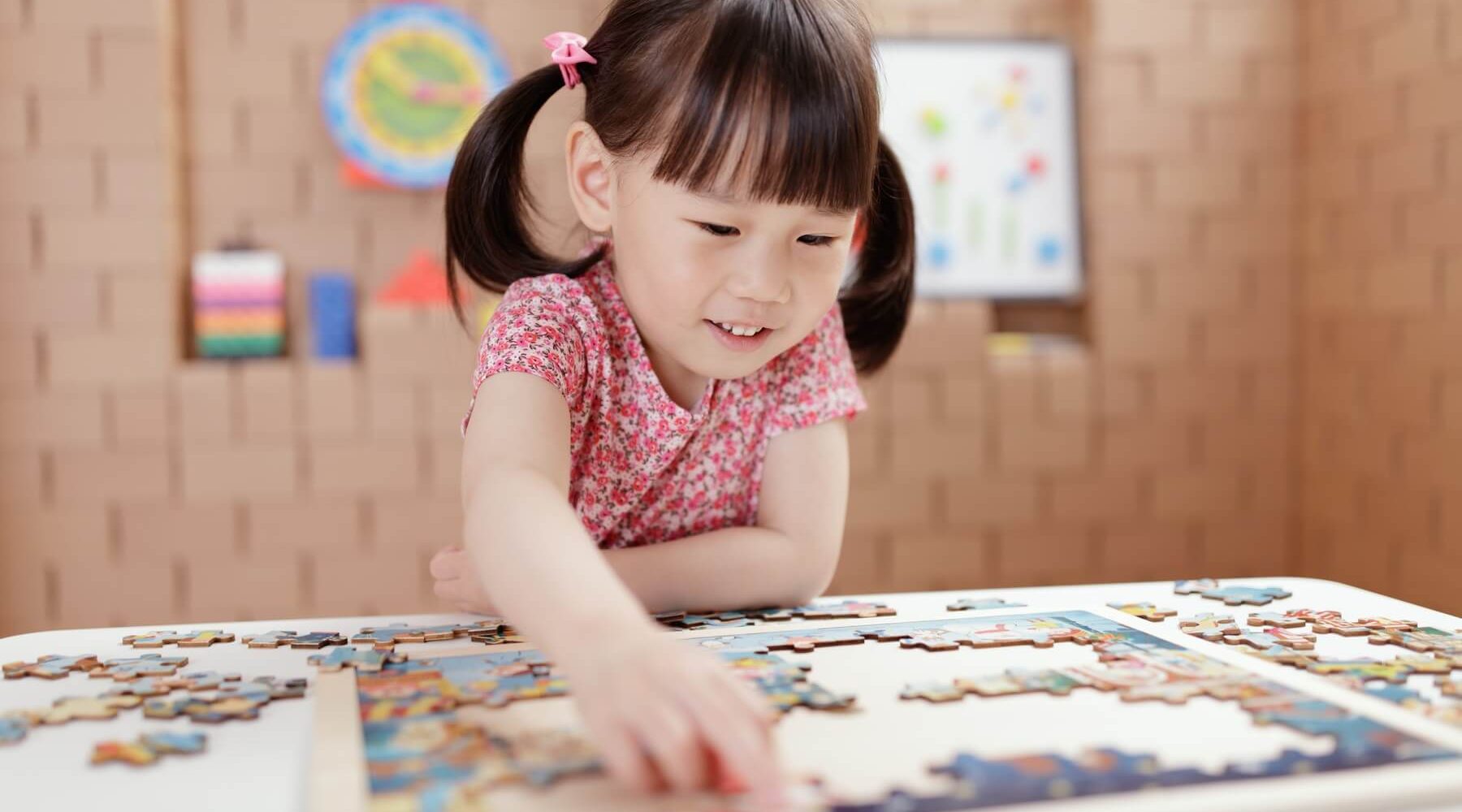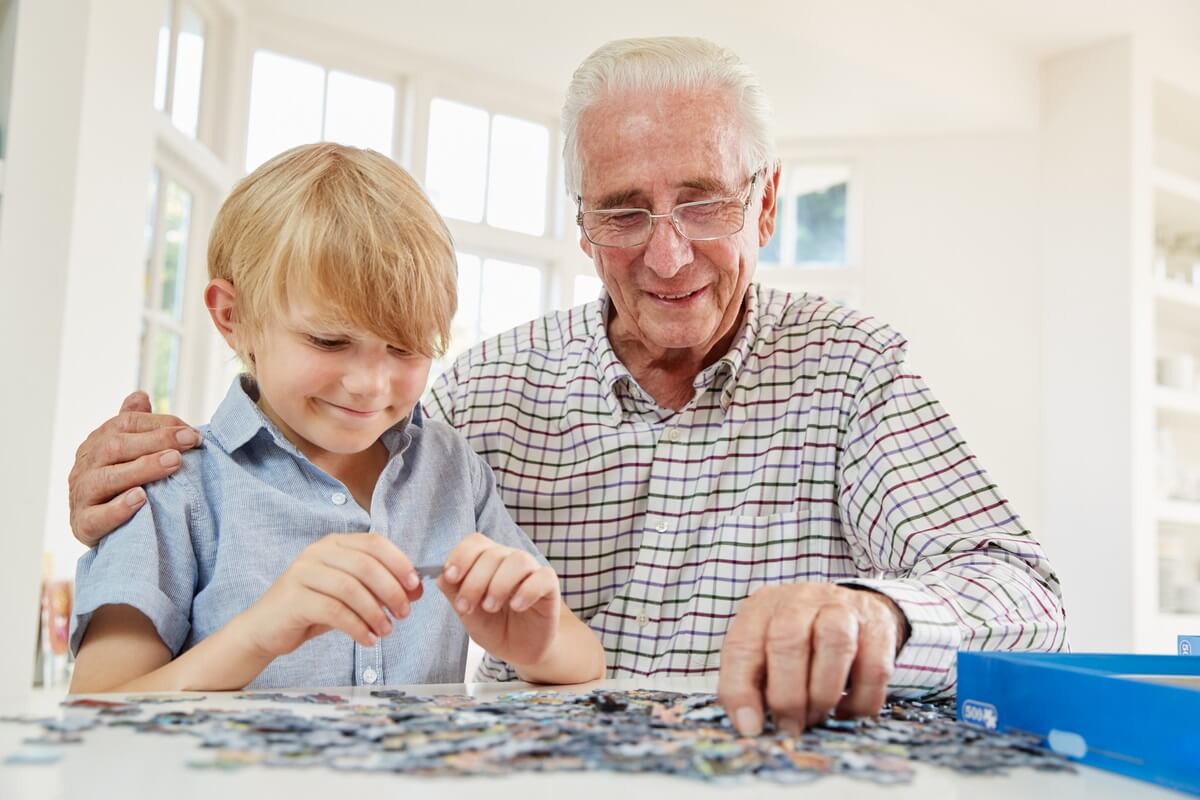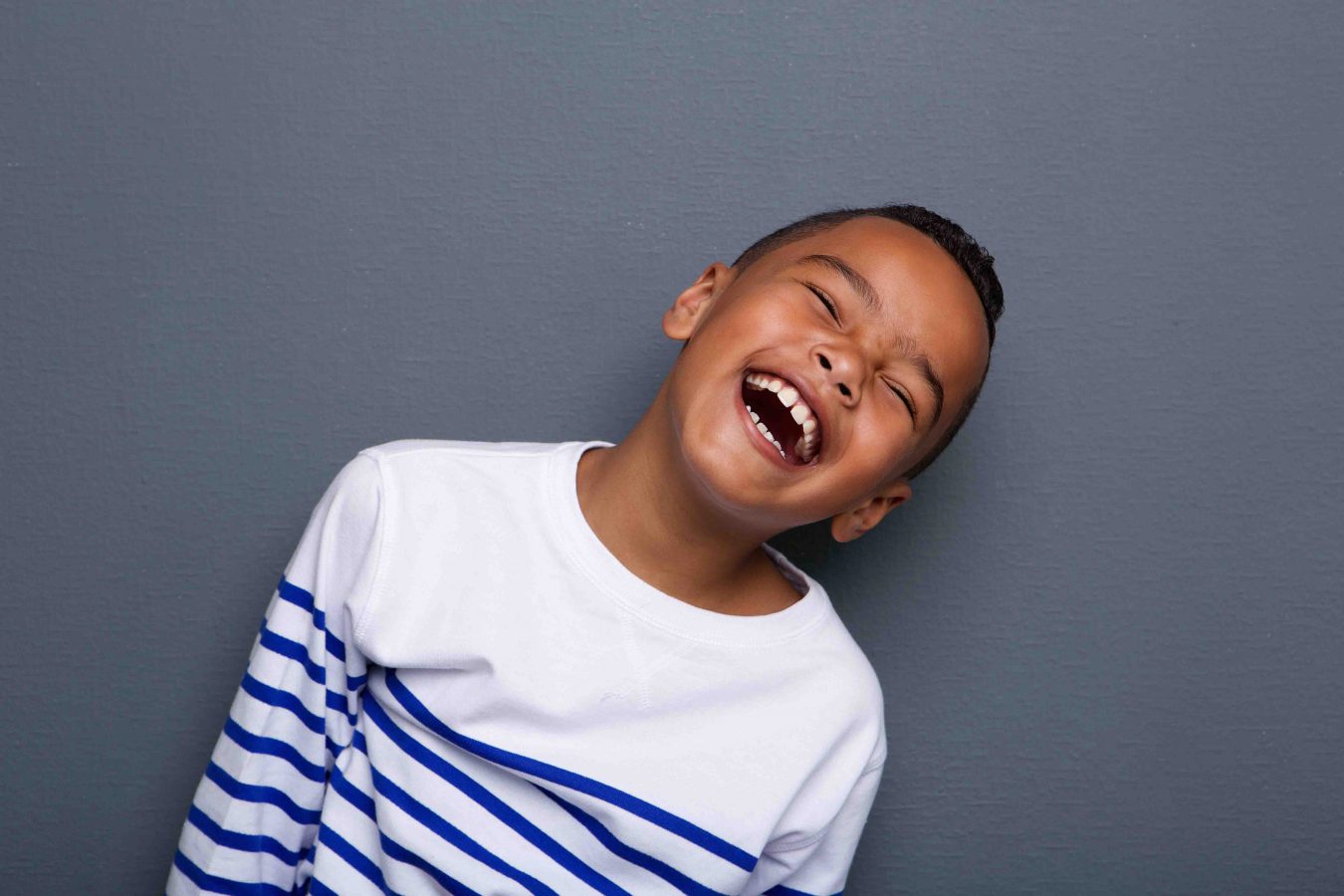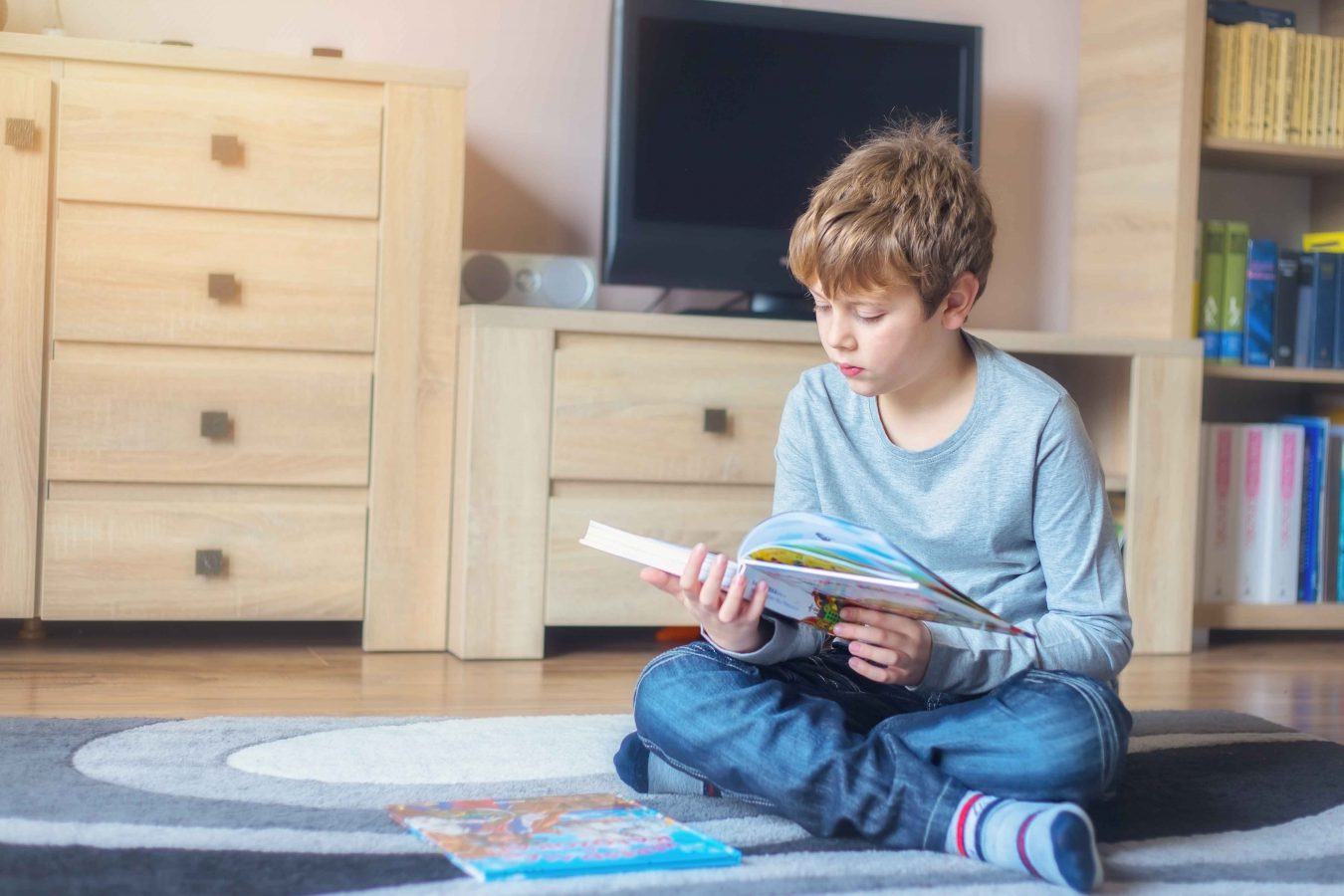
The simple jigsaw helps kids with a long list of important development skills, writes Diane Bourke.
Jigsaw puzzles are deceptively simple but, despite their simplicity, they can be an exceptional learning tool for children, they can improve memory and mood in adults, and can even help prevent cognitive decline as people age.
Did you know that if you enjoy completing jigsaws you are a dissectologist? Jigsaw puzzles prior to and during the 19th century were referred to as dissected maps or dissected puzzles.
The first commercial jigsaw puzzles were developed around 1760 by British cartographer and engraver John Spilsbury. He fastened a map of Europe onto hardwood and used a marquetry saw to cut along the national borders of the countries. These prototypes were called ‘dissected maps’ and were used as educational tools to teach children geography. Seeing that the first puzzles were well-received, Spilsbury began a business and produced puzzles using further geographical themes.
As we know, most modern jigsaw puzzles are made of paperboard as they are easier and cheaper to mass-produce. Interestingly, despite the name, it seems a jigsaw was never used.
Jigsaw puzzles soared in popularity during the Great Depression, as they provided a cheap, long-lasting, recyclable form of entertainment. A resurgence in their popularity occurred again in 2020 because of the COVID-19 lockdowns.
Young children’s brain development is influenced significantly when they act on or manipulate the world around them. Jigsaw puzzles provide this key opportunity. Studies have shown that hands on, playful learning experiences will provide the opportunity for young children to see learning as positive and joyful, and therefore something they will want to continue for the years ahead.
What is it then that makes jigsaw puzzles such a wonderful tool for children’s overall development?
1. Hand-eye coordination
Jigsaw puzzles are particularly effective at helping young children with their hand-eye coordination. A relationship must be developed between children’s eyes, hands, and brain.
Children visualise how the puzzle should look on completion and their eyes and hands work together to achieve this goal. The ability to coordinate what the eye sees, the mind wants to do and what the hands can achieve requires practice and jigsaws are ideal in allowing his to happen.
2. Fine motor skills
This ability to coordinate what the eye sees involves small movements that use the wrist, fingers, hands, feet, and toes. It takes time to develop. The muscles in young children’s hands need lots of practice holding and moving small objects. Jigsaw puzzles provide the opportunity for children to develop fine motor skills that are necessary for handwriting, drawing, learning a musical instrument or even playing sport.
Don’t be tempted to step in when children are completing jigsaw puzzles, or you will rob them of this opportunity. There are many other ways to offer your support and encouragement. This is an ideal time for positive chatter or soliloquy. You could for example say, ‘I love the way you are looking closely at the pieces. Granny/Mummy likes to first sort them by colour’.
3. Spatial awareness
Spatial awareness involves being aware of yourself in your immediate physical environment and recognising how other objects relate to you and each other. While completing jigsaw puzzles, spatial awareness, sometimes called spatial perception, comes to the fore.
Children learn to identify which pieces will fit together by analysing their colours and shapes. They turn pieces around to find the correct fit. Slowly they learn to do this in their heads rather than by trial and error. University of Chicago researchers found that children who play with puzzles between ages 2 and 4 later develop better spatial skills. These skills help when driving a car, using a map, or learning and following dance moves.
4. Improved concentration and patience
Completing a jigsaw puzzle requires children to focus for increasing periods of time and, as there is very little we can do in life without concentration and focus, jigsaw puzzles can be the perfect tools to develop these skills. The ability to capture small details when working on a jigsaw puzzle can also support learning. Patience is also improved as children become absorbed in the puzzle, another skill which is useful as children move through life. There are no ‘short cuts’ here as there is no way to cheat.
5. Memory
Completing a jigsaw puzzle reinforces connections between brain cells and improves mental speed. Jigsaw puzzles keep children’s minds active and dynamic which is especially advantageous for developing their short-term memory. A flicker of colour on a piece might remind the child to remember a colour already seen. Such experiences can increase the speed of connections in the brain.
A further way to boost memory is to assemble the jigsaw over and over, with the aim being to complete the puzzle more quickly each time. This might even lead to eventually entering the National Jigsaw Puzzle Competition. Yes, you read correctly. The aim of the competition is to complete a jigsaw as fast as possible. No experience level is required, and the winner wins two return tickets to represent Australia in the World Jigsaw Puzzle Championships in Spain in 2022.
6. Problem-solving
Effective problem-solving is a valuable and important skill. Jigsaw puzzles teach children to use their own minds to figure out how to solve problems and think in a logical and critical manner. Children take different approaches as they assess different pieces. This helps their brains formulate theories, test hypotheses and change opinions and perspectives when something doesn’t work.
Sorting strategies inherent in solving jigsaw puzzles assist children to break down a large task into smaller ones, an important problem-solving skill for school and beyond. They also learn to self-correct, another great exercise.

7. Language
Research has repeatedly shown that children need to be spoken to very often, especially in the early years. This exposes them to new vocabulary that can be used as they move through life. Terms such as above, below, beside, to the right of, along with many others, can be used in discussions about the image generally or about specific pieces. Jigsaws can provide an ideal avenue for extending young children’s vocabulary.
8. Self-esteem
Completing a jigsaw puzzle can be a wonderful chance for children to perform a task on their own, thus generating a sense of accomplishment. With an age-appropriate puzzle, children will not require adult help. Such independence will improve their sense of self-worth and lead them to pursue new challenges. Determined and confident, they will delight in their persistence paying off.
9. Social skills
Alongside the many benefits of completing jigsaw puzzles independently, are benefits resulting from completing them as a group. They are a great way for parents to connect with their children or to help children bond and build friendships. They are also perfect for practising social skills and resolving disagreements with others.
Why not start a jigsaw puzzle and leave it on the table as an invitation for the whole family to participate?
10. General knowledge
Jigsaw puzzles cover many topics so can assist children to learn more about the world depending on what picture/theme involved. Not only will children’s general knowledge be broadened but their vocabulary will be too, as you chatter together about the outcome. Look for images that make you and your children happy or curious.
Good for the mind, body and spirit
For children and adults alike, doing a jigsaw puzzle is good for mind, body, and spirit. There is a view that the jigsaw experience generates much the same benefits as meditation, with both involving focusing on an image for an extended period, without extraneous thoughts entering the mind.
Stress levels are reduced as our brains go from Beta or awake to Alpha, as when we are dreaming. This shift in consciousness comes with many benefits, such as the ability to make deeper connections, improved mood, increased self-confidence, along with the reduced stress.
Furthermore, when puzzles are solved through a flash of insight, the ‘aha’ moment, the mood-enhancing substance, dopamine is released and deep brain structures are activated, explaining the ecstatic joy that goes with solving a creative problem. It can feel great to place a piece in a puzzle.
From fine motor skills, to problem-solving, to self-esteem, the advantages of puzzles for children’s development are numerous. What’s more, they last and are inexpensive.
Jigsaw puzzles also provide an opportunity to unplug, individually or as part of a group, from the information overload that so often constantly weaves its way through the very fabric of our lives. A jigsaw puzzle requires full attention and therein lies the magic.
Like this post? Please share using the buttons on this page.
About Diane Bourke
Diane Bourke is a Project Manager for Independent Schools Victoria. She was Head of Junior School, Campbell House, at The Geelong College for 16 years, and Head of Junior School, Morris Hall, Melbourne Girls Grammar for 15 years.
Subscribe to The Parents Website

